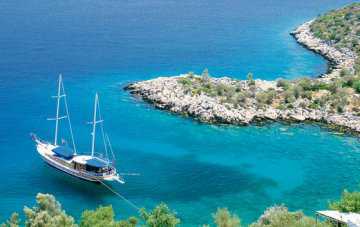Up to 150 people have been left stranded in Turkey after the collapse of a north London-based tour operator.
K&S Travel, which also trades under the name Travel Turkey, organises package tours to the country through flights chartered with Onur Air.
A K&S Travel spokesman said the firm would organise flights for those abroad when their holidays were completed.
It is thought more than 85,000 people have been left stranded abroad after Friday’s collapse of XL Leisure Group.
XL is the UK’s third largest tour operator.
The Civil Aviation Authority (CAA) said the holidaymakers were covered by the Atol protection scheme and will be entitled to a full refund.
The CAA is understood to be rechartering planes from Onur to ensure the return of K&S passengers, most of whom are in the resort of Bodrum.
But 460 people who have future holidays booked through K&S Travel will have their travel plans cancelled.
BBC NEWS | UK | England | London | Holidaymakers stranded in Turkey






